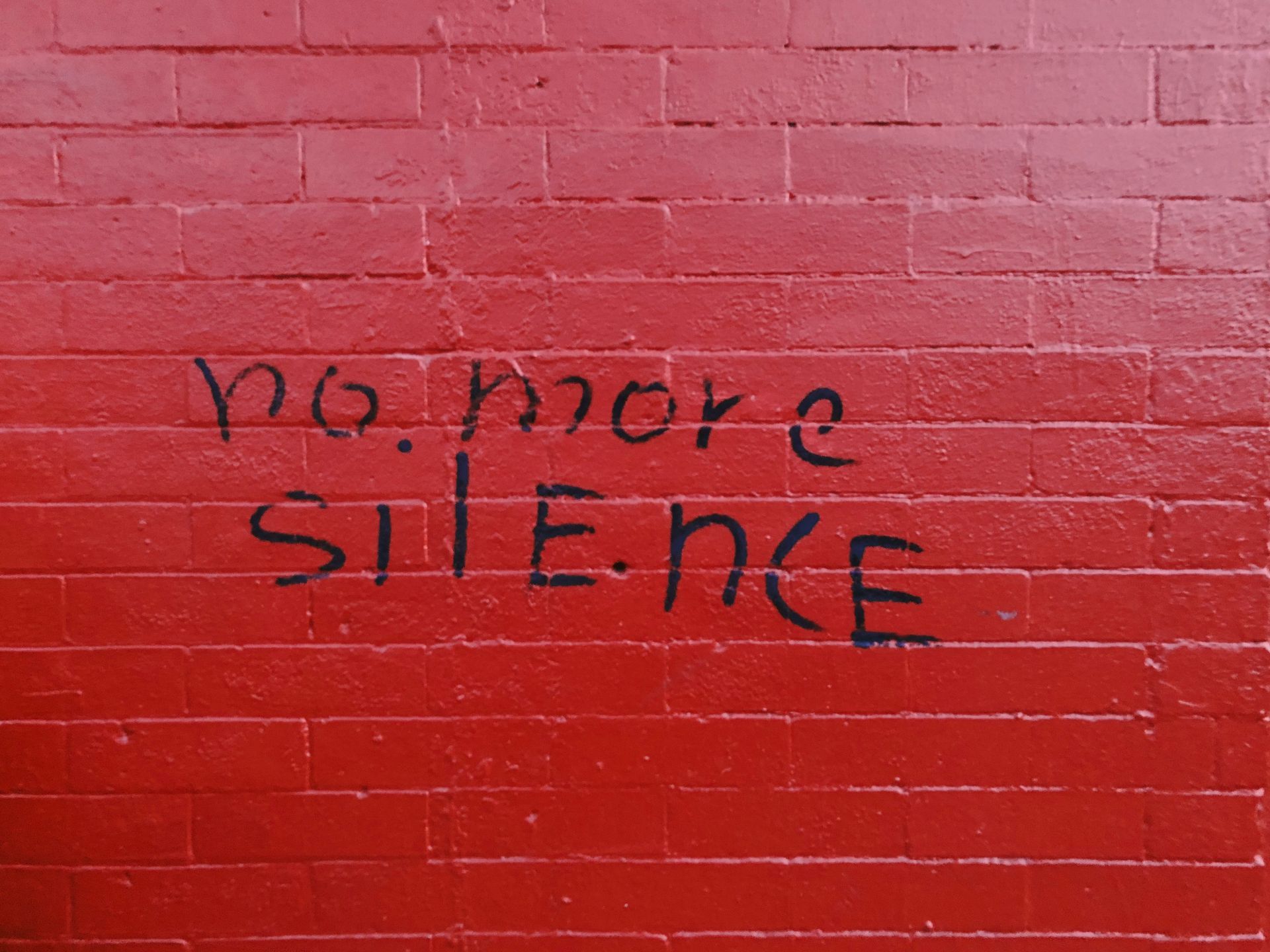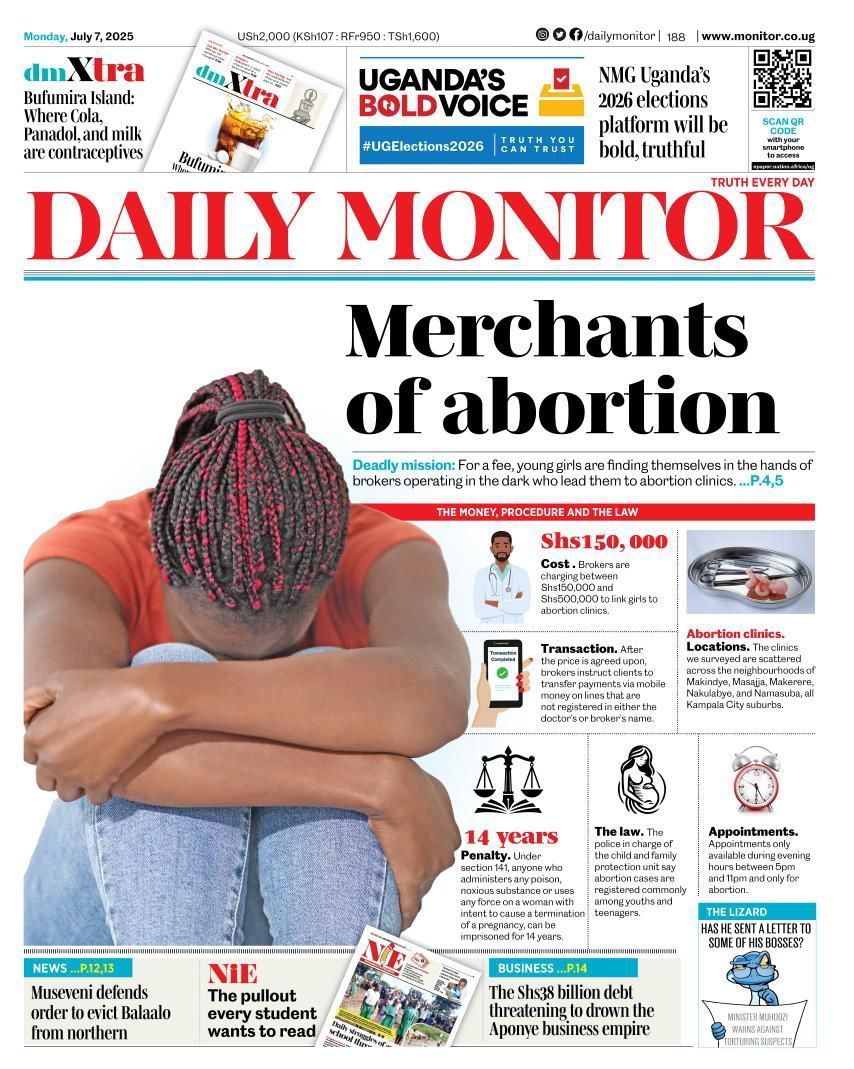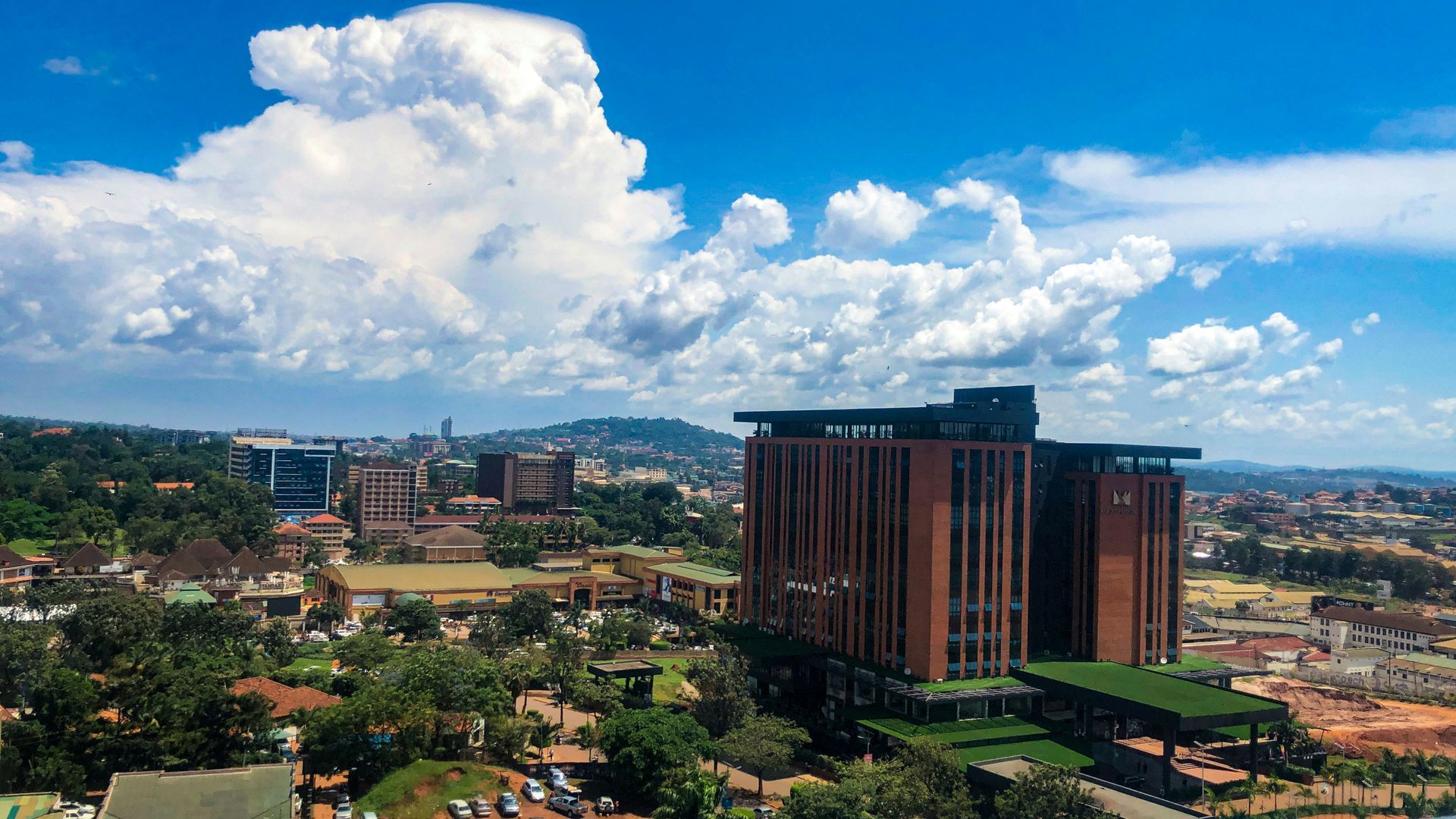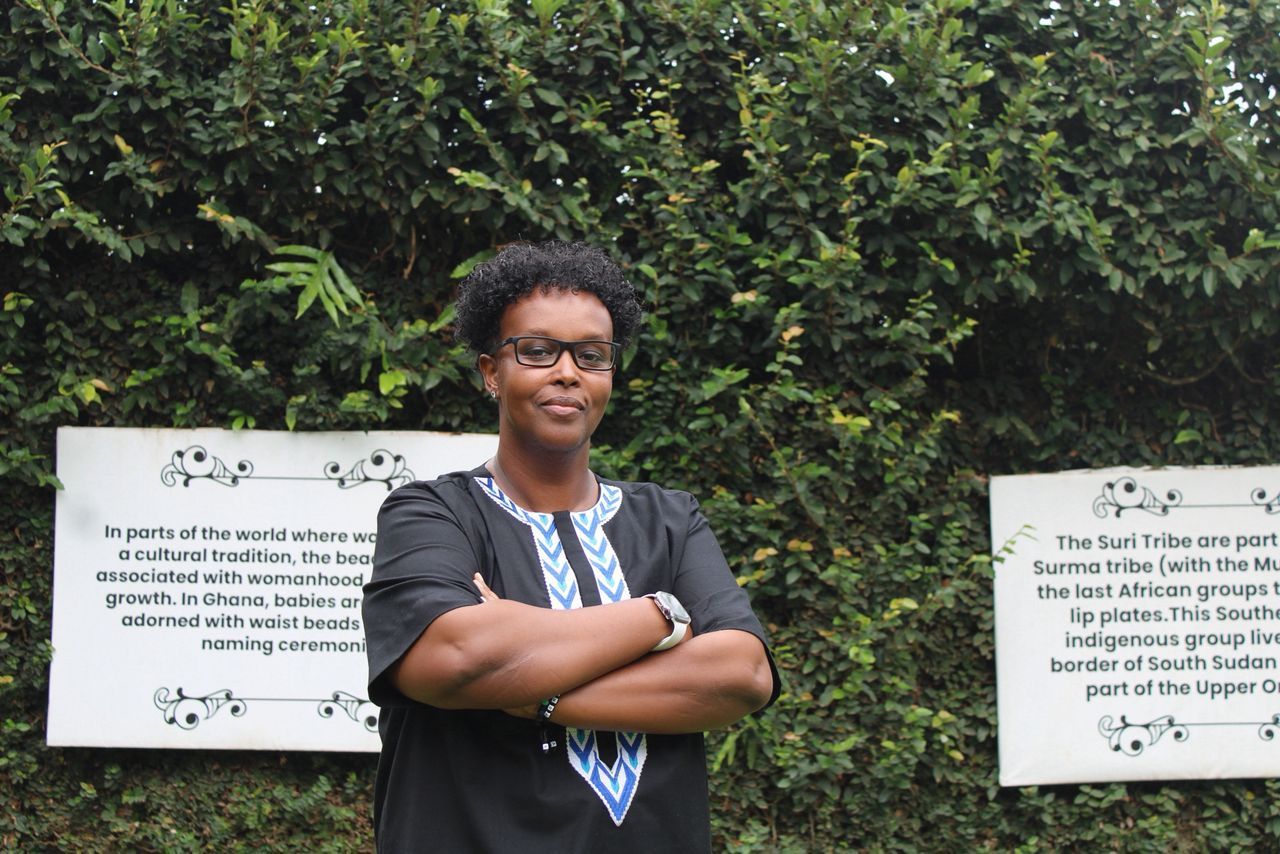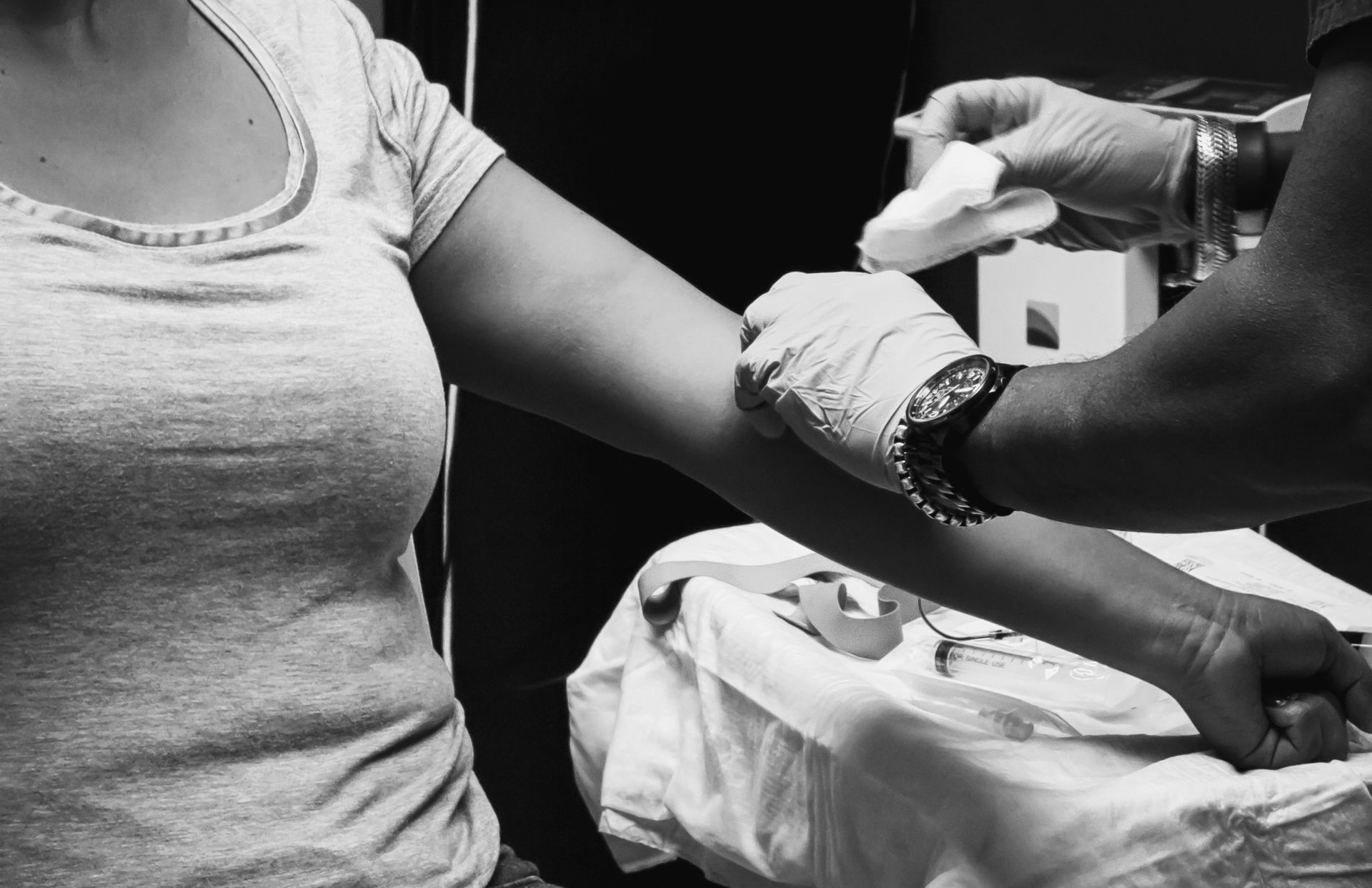May 5, 2025
I once went to the Ggaba fish market on a rainy day and the road had turned into a soupy mess. If you have been there, I do not have to describe to you the sticky black earth that became glue for a laden bicycle, bringing it down and blocking a pathway. This forced people to make their way through a food stall and in particular, to jump over some matooke. A few women, foreigners, managed to do it but I was paralysed. After standing there for a moment, I asked the lady in the stall. ‘Can I jump?’ It was the sort of question a child asks when they know they shouldn’t do something but want an adult to absolve them. She said ‘Bwoba toli Muganda, buuka.’ If you are not a Muganda, jump. The culture says simply, ‘Do not jump over food.’ I found another way. Culture dictates what can and can’t be done. It guides and protects but it can also restrain. If a cultural norm could hold me back from crossing a path, imagine one standing against a woman’s ability to own land. In Uganda, few things are as prized as land. This makes its exchange and ownership almost sacred. When land is combined with women, the temperature rises across cultures. The words ‘Our culture says women do not own land.’ are often mentioned, leaving people throwing their hands up in defeat. And yet, it is no secret that families where women are alienated from land rights see a decline in everything from nutrition, household income and education levels for children. Women in Uganda can own land by buying it. However, without a strong financial base, the only other ways are through inheritance and marriage. Where women cannot inherit family land, marriage becomes an avenue. Should a woman be unable to inherit land from her husband or if she remains unmarried, her chances of owning land reduce even further. We cannot discuss land in Uganda without looking at the word ownership. In the pre-colonial times, a lot of the land was communally owned and it still is in many places. Whereas women didn’t have ownership, they could have user rights or access rights. They could farm on and construct on the land. This has remained the case today. I did a tour of 5 tribes in Uganda to get a reading of what the different cultures really say about women and land ownership. LUGBARA, THE TEREGU What culture used to say: As head of a family, a man can take a decision like selling his wife’s land without her permission. The advent of colonialism gave women of the Teregu tribe the semblance of a voice. Now they could report their errant husbands to the Local Councils and to the police. Enough husbands were imprisoned that it became a point of concern for the elders. Together with the chiefs, the elders sat down and put a curse in place to curb this practice. Should a woman ever report her husband to a civil court, she would suffer supernatural consequences. This is known as the Aruba practice. It was an effective deterrent and it became part of the culture. Unfortunately, since the men knew that they were insulated, it led to a repeat of the maltreatment women were reporting in the first place; including acts like selling land a woman had bought for herself with impunity. What culture says now: Fast forward to the 2000’s and once more the chiefs and elders sat down and scrutinized the situation and found it to be unfair to women. To make things more equitable, they decided to undo the curse that had tied women's hands. After some sacred rites, it was declared okay for a woman to report a man with no fear of harm befalling her. This means that it is no longer acceptable for a man to, for instance, sell his wife’s land without her consent. However, some people ignore the updated cultural edict, and choose to follow what was done in the colonial times. Their excuse is that ‘Our culture says…’. TOORO What ‘they’ say culture says : “Women are free to own land.” “We do not give women land.” Among the Batooro, there is equity. Still, others whisper that they do not give women land. This is an example of people modifying culture to serve their interests. What culture really says: Women in Tooro can and do own land and it can be attained through inheritance. Grandparents for instance can give land to either female or male grandchildren. This is however more respected when this gifting is documented or is mentioned publically. In the absence of that, males tend to be given higher consideration when land is being shared. Upon the passing of a father, it is not uncommon for the family home to be left to the widow and his daughters and not the sons. One daughter of Tooro mentioned that her late father has 3 heirs; 2 daughters and a son. All decisions about the estate are taken by the trio and this is not frowned upon customarily. I spoke to women who had themselves inherited land from their fathers and knew several others. While there are families who opt to only have male heirs and males owning land this is a personal choice and doesn’t appear to have cultural backing. Additionally, there is no social barrier should a woman wish to buy land. No one will ask her ‘where she got the money.’ Tooro culture today Marriage used to be the only avenue for women to get land but the thinking around marriage has changed, and this has in turn shifted the thinking around land rights. Some women do not marry, others freely end marriages they are unsatisfied with. This phenomenon has led parents to think about the future of their daughters. “It is no longer just about the boy, people have realized that when parents die, their girls suffer. And if your children suffer then you have not died peacefully,” said one mother. Today parents are taking steps to leave assets to both girls and boys and this is something that is respected in the culture. In addition, women are more enlightened and can ask questions when they are left out of land sharing. ACHOLI What culture says: Girls and women do not inherit family land. Mothers however are conduits for their children, specifically boy children to own land. In Acholi, as in many other places in Uganda, polygamy is a common practice. Here, a husband may allocate different portions of land to different wives. When Akello got married, her husband gave her land on which to raise their children. When he passed away, Akello retained that land and was able to build on it as well as grow crops and rear some animals. When her co-wife’s son, Ocen, tried to seize Akello’s land, she ran to the elders. They pointed to Ocen and said. ‘This is not your land. Your father gave your mother the other land, you should inherit that.’ At this point, the elders realised that mothers, despite not having full land rights themselves, were conduits for their children, specifically boy children, to own land. For this reason it was important to include women in the land conversation. Should a mother have only girls, their sons, her grandchildren would inherit that land. Once more, this made marriage a key area for a woman to gain stability. There was no consideration put in place for a woman should she leave her marriage. Some families however welcome women to return to the parental home should a marriage end or should their daughter become a widow. Culture today Benevolent fathers or brothers can offer daughters and sisters land user rights but there are limits to what she can do with the land. While this is one of the best case scenarios, having user rights alone is untenable. Women in this situation need to ask for permission to fully benefit from the land. They live in uncertainty because the owners can change their minds at will. Women across the country are encouraged to embrace user rights and perhaps use them to earn money to buy land they can own fully. Today, a father or mother in Acholi may decide to give their daughter land outright. And if she has the money, she may buy herself land. However, depending on the society she finds herself in, it might be easier for her to front a male as the buyer and secretly own the land. In the recent past, the certificate of customary ownership has become popularised. It allowed all family members/owners, without excluding the women, to be documented. Despite this, some families have chosen to go against it and not include women. A saying in Acholi is cited “Ceere pat pat”, literally meaning; “Even though we are one tribe, what happens on that hill isn’t normal to this one.” For instance; Just because you choose to give your daughters land, doesn’t mean I should do the same. BUGANDA What ‘they’ say culture sa ys: “In our culture, a woman does not inherit land. In our culture, a woman does not inherit her husband’s land. It can only be inherited by their children. In the absence of said children, the land reverts to the man’s larger family.” What culture says: Traditionally, neither men nor women owned land, all land belonged to the Kabaka. Instead, they had user rights. With colonialism came private land ownership and for reasons of society and economics, it was men who were primed to take advantage of this. However, no law barred them from giving land to their daughters and some did, allowing women to own land outright. Women could also inherit land from their other relatives. Prior to that, a woman could also gain land user rights through marriage. These rights were predicated on the husband’s life. Upon his death, her brothers would come to take her back to her family of birth. However, it was important that her children who are considered to be of the father’s clan be taken to their father’s people. If the widow did not remarry, or if a daughter had never married, she would stay on her father’s or brother's land and would have land user rights until her death. It was generally understood that women should not be dispossessed. When it came to inheritance, a man would have 2 heirs, a male and a female co-heir called the Lubuga. This could be a sister or niece and the two worked hand in hand. Likewise, a woman would have 2 heirs. The advent of colonialism and western religions undermined the existence of the Lubuga for men, greatly exalting the primary male heir. It is also important to note that Baganda can make a distinction between heirship. Omusika owomusayi (of the blood line) and Omusika ow’ebintu (an heir to the property). Omusika owomusayi stands in the place of the deceased and takes over their responsibilities. For instance, the musika for a father would perform the duties of the father, essentially becoming a father to the late’s children. However, omusika ow’ebintu, of the property, including land, can be either male or female, especially in more modern times. In Buganda today, a woman can inherit land from her father, her mother, her relatives, her husband and she may buy land for herself. I found some parents who prefer that daughters inherit the family property. They feel that girls take better care of property and are deemed more sentimental to their parents’ legacy. BAGWERE What culture said: There isn’t a well-documented literature of the Bagwere culture and traditional perspective so some norms were borrowed. But when it comes to land ownership, customarily, daughters were not given a share of land. Women owned land by buying it or via marriage. The latter is a major reason why daughters were not catered for in family land sharing. There was a belief that she would be taken care of by her husband and that if she was given land, she would take away what was considered one family’s wealth and give it to another. This belief cuts across all the tribes I interacted with. However in reality, across all tribes, women would actually not get land from their husbands, the land was reserved for their male children, if at all. Among the Bagwere, a widow was entitled to a share of her late husband’s land to do with as she pleased but it is unclear if she had full ownership rights. If a marriage ended, her father or the head of the family might give her land to live on but this was and is not mandatory. What culture says now: Then as now, there were cases where a family head gave land to his daughters. The culture has evolved its thinking to the point that now daughters can be installed as heirs for their fathers. However, the heir is not meant to sell the land but keep it for family use. The same applies even if the heir is male. Barring any of the above, in some families, girls are assertive enough to stand up and demand for a share if they are left out in family land distribution. In researching this story, I found culture to be like an endless onion. One layer reveals another and another and another. It was impossible to condense it. However, there were 3 stand outs: The first being that culture is not static. As with the Lugbara, it can shift to solve an issue and shift again to solve yet another one. I learnt that by and large, people will do what makes them most comfortable, physically and psychologically. Some people will look at culture and choose not to follow it…they will say, ‘I know our culture thinks I should not, but I will give my daughter this land.’ Others will say, ‘Culture says I should let my brothers’ widow retain his property but I will not.’ Second, I learnt that because our cultures are not well documented and are passed on orally there is room for distortion. But to that point, unlike the western legal system we inherited, cultural landmarks are not laws that one will be punished by. Just like at the Ggaba market, no one was there to arrest me if I skipped over the food, but I could not do it. Lastly, I learnt that culture is an ongoing conversation. By virtue of people being representatives of culture, it means that culture is alive and living things change. So is culture to blame for women’s land disenfranchisement? You be the judge. This story was written by Anne Kirya and supported by the FOTEA and OXFAM Stories4Change program. Illustrations by Shem Kamba. It was written in consultation with people from different cultures; mothers, fathers, grandparents, grandchildren, elders, sons and daughters. Adomati Aldo, Maria Ndagire Kirya, Richard Kirya, Kamba Saleh, Mrs. Nyakana, Kenyana Anne, Christina Kaijabwangu Ebinu , Sunday Akumu, Jimmy Ochom, and David F.K Mpanga.


